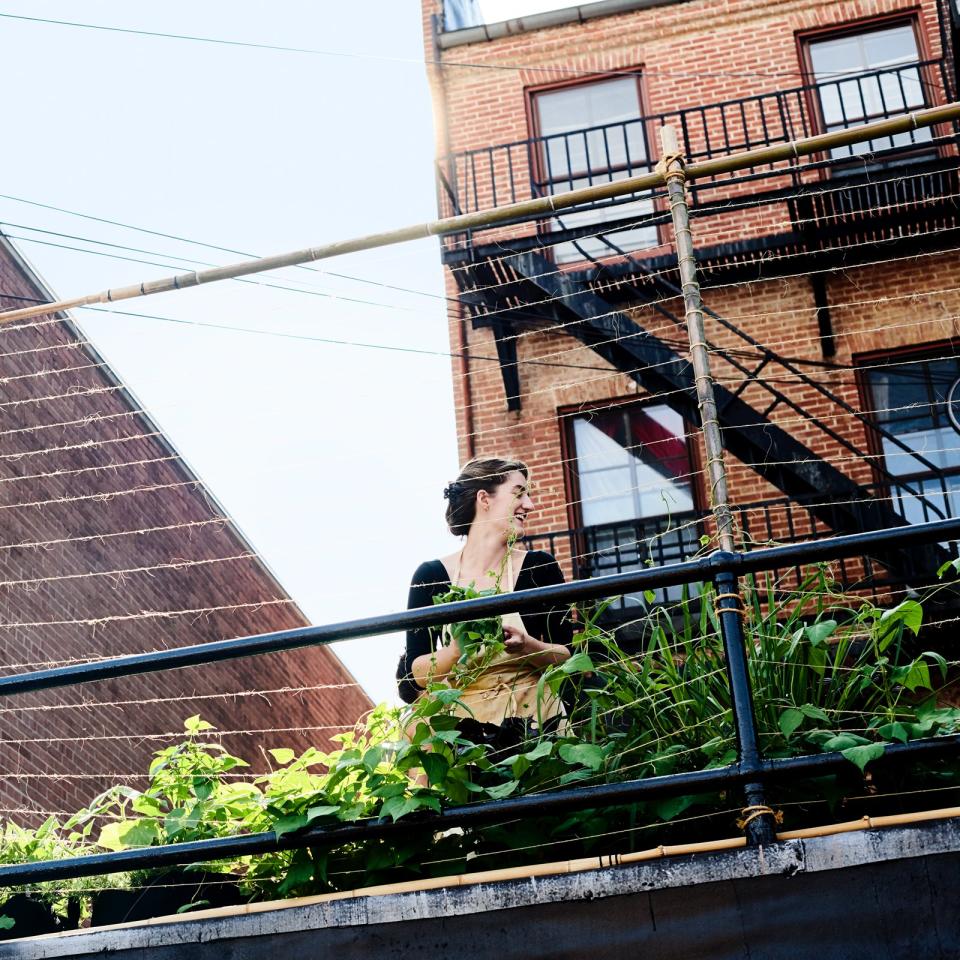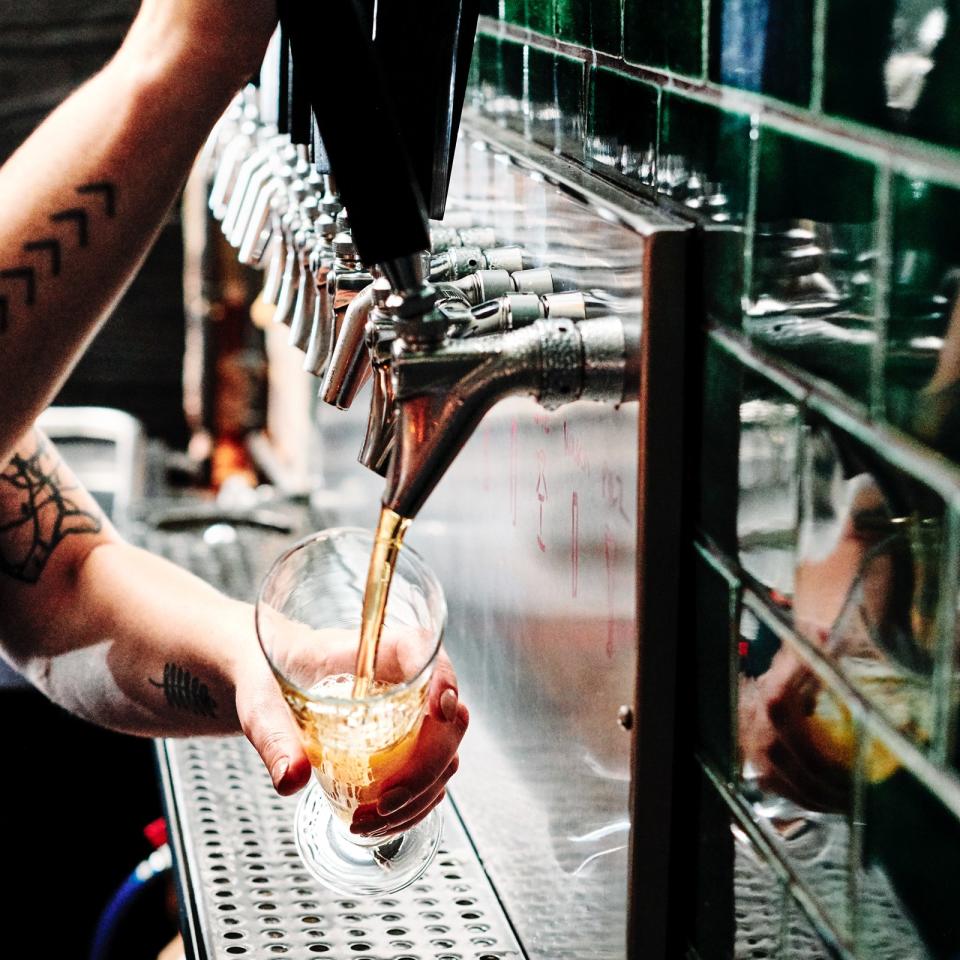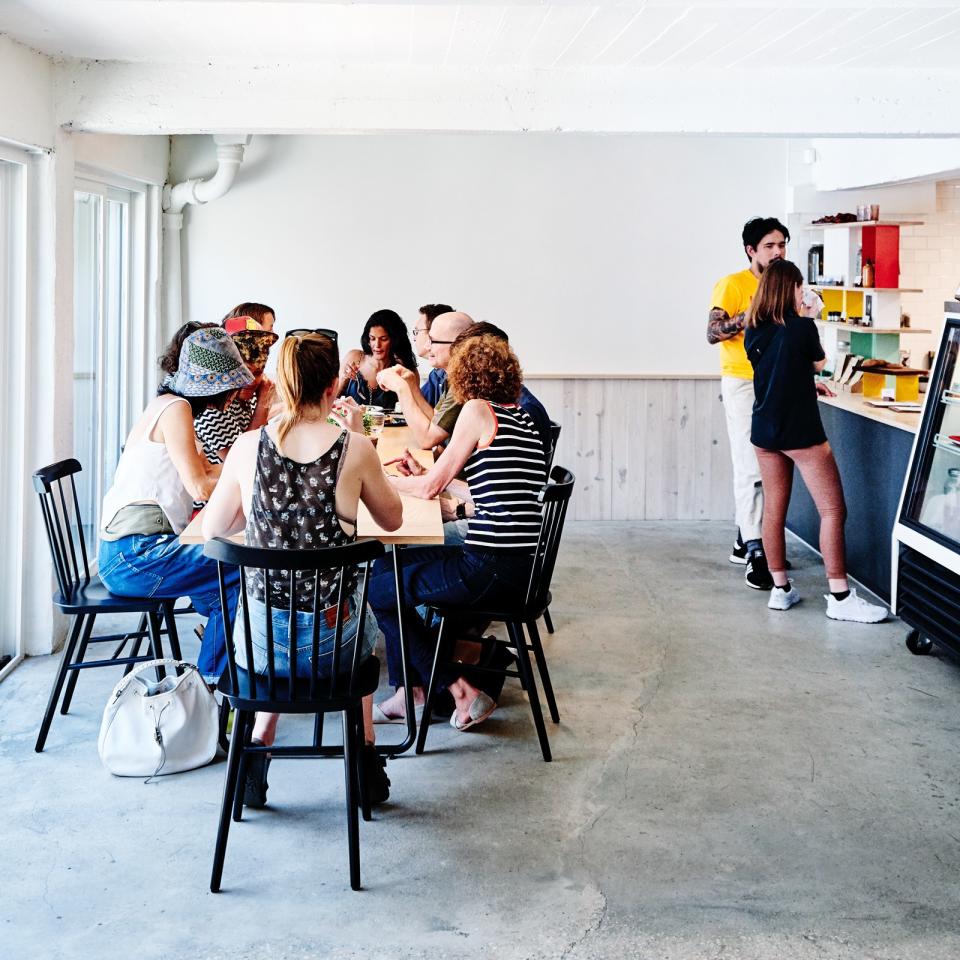Ever Heard of a Communal Restaurant? Here’s How Four Baltimoreans Make It Work
Over the past decade, Lane Harlan and her partner, Matthew Pierce, have redefined what it means to have a proper drink in Baltimore, first through their intimate cocktail bar W.C. Harlan, then with their mezcaleria Clavel. Lying dormant in their minds the entire time was the idea for a modern, open-air biergarten. But as Harlan points out: “Spaces dictate what you do with them.” So last year, when the ideal locale—a former residence and carriage house, built in the 1850s and separated by a vacant lot—finally came up for sale, the couple realized this project would be more than just theirs alone. They gathered some friends and created a dining collective, with five distinct spaces and an artist residency, called Socle, which means a platform for displaying art.
A subterranean corner lot became Sophomore Coffee, from former Clavel manager Kris Fulton and his partner, Ann Fortune. A small retail space with an open kitchen became Larder, a thoughtful lunch concept from artist-turned-chef Helena del Pesco. Across the communal patio sits Harlan and Pierce’s baby, Fadensonnen: downstairs, a casual beer parlor; upstairs, a cozy natural wine and sake bar. “Someone could go to Sophomore on a Saturday morning to drink coffee and check their email,” says Harlan. “They could walk to Larder, order lunch, and sit with a friend in the courtyard. Then they could ease into evening with a glass of wine from Fadensonnen. We’re individual concepts coexisting, but we’re also a cultural community of our own.” Here’s how it all comes together.


1119-Stay-All-Day-Rooftop-Garden.jpg
Del Pesco is in charge of food for the entire complex, collaborating with Harlan and Fulton on menu ideas before selling finished products back to them wholesale. Her days start at 6 a.m., when she starts baking Sophomore’s signature salted chocolate chip cookies and seasonal pastries. From 11 a.m. to 4 p.m., she churns out grain bowls, soups, and killer grilled cheeses at Larder. When Fadensonnen opens at 5 p.m., she starts sending over small bites to be plated by the wine bar staff: marmalades, lacto-fermented vegetables, and pâté made from local mushrooms, whose earthy flavors come together with a splash of rancio sec from the bar’s rotating wine list.
Socle grows “more herbs than we know what to do with,” according to Harlan, in a shared rooftop garden. Fertilized by food scraps from all three businesses, the herbs are used for Larder’s dishes and the teas served at Sophomore and Fadensonnen. The rest of the scraps and used compostable containers are collected weekly by Washington D.C.’s Compost Cab, which donates them to local farming nonprofits.

1119-Stay-All-Day-Faden-taproom.jpg

1119-Stay-All-Day-Larder.jpg
All the owners are committed to smart sourcing, and buying collectively lets them support smaller producers, like family-run South Mountain Creamery, which still runs a door-to-door milkman service. Much of Socle’s produce comes from Chesapeake Farm to Table, a network that’s helped transform some of Baltimore’s vacant lots into urban farms. Many—such as Larder favorite Strength to Love—are located in food deserts, and also provide job training and agricultural education.
“We share basic materials like ice in the summertime when people are drinking tons of iced coffee at Sophomore, shrubs at Larder, and spritzes at Fadensonnen,” says Harlan. “We got on an ‘ice pickup’ schedule so that our single machine has enough hours in between to recuperate!”

The team regularly collaborates on fundraisers—like Gut High, a wild fermentation festival spearheaded by Lane Harlan and the Fadensonnen team—to raise money for the Old Goucher neighborhood where they’re located: planting native flora like pussytoes and Christmas ferns, adding brighter street lighting, and installing sidewalk bike racks for public use.
To supplement the small plates on Wednesday through Sunday nights, Harlan rents out a community food truck parked outside the beer garden. She subsidizes half the rental cost to promote experimentation and diversity. Frequent guest chefs include the Mera Kitchen Collective, a worker-owned female refugee cooperative, and Harlan’s mother Lola Yuzon-Harlan, a Filipino émigré who serves Pampanguenan comfort foods like arroz caldo, sinigang, and adobo.
Originally Appeared on Bon Appétit
